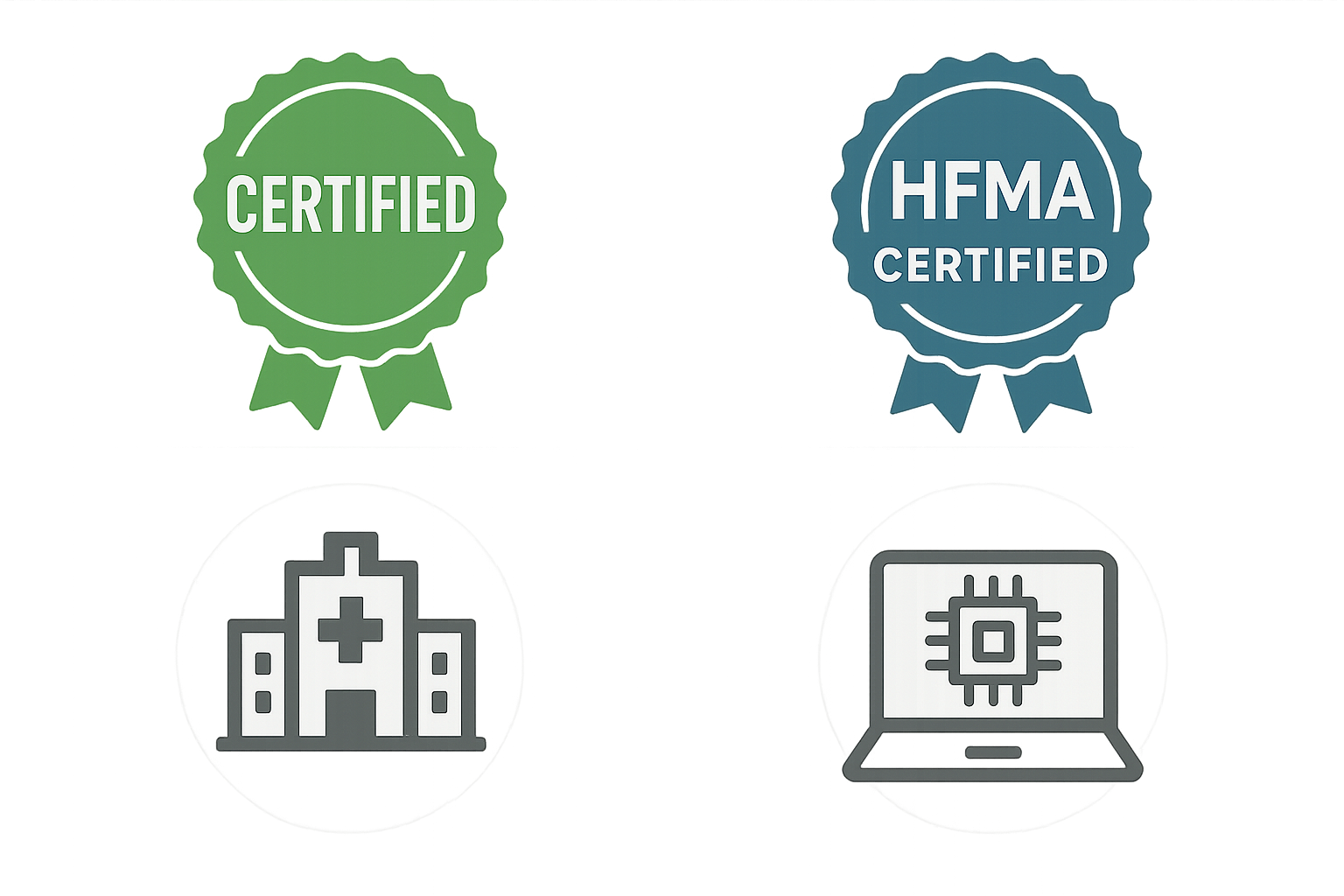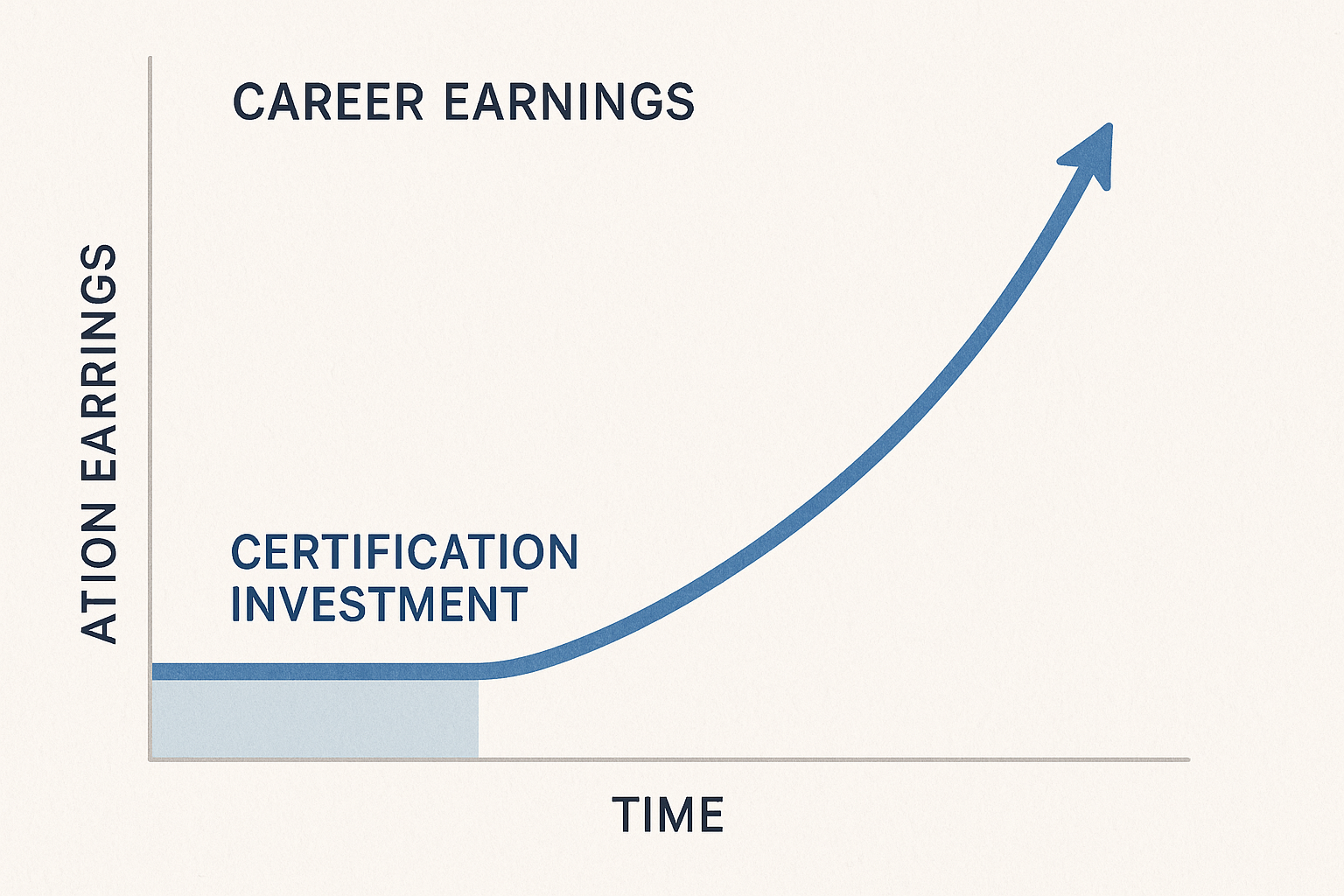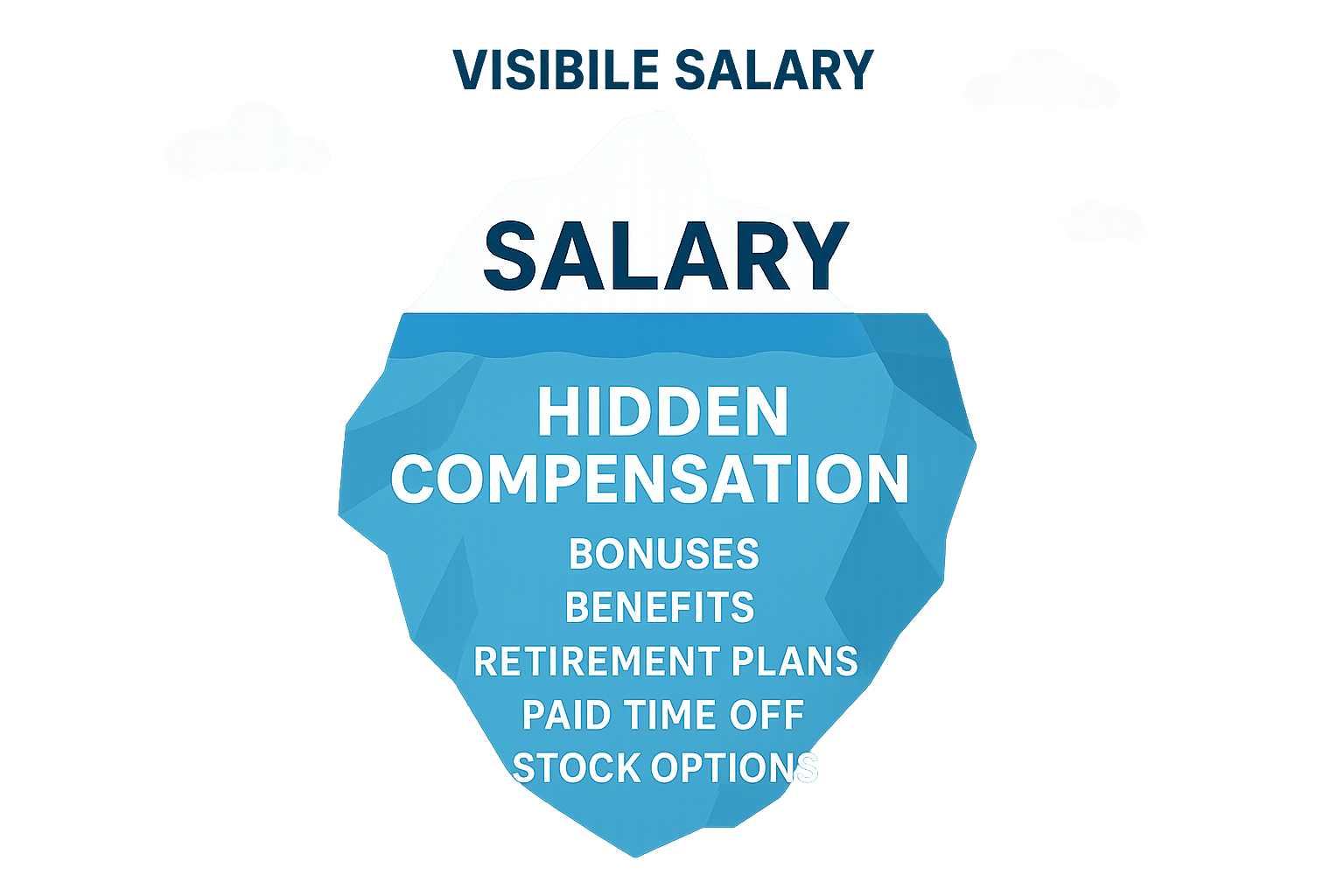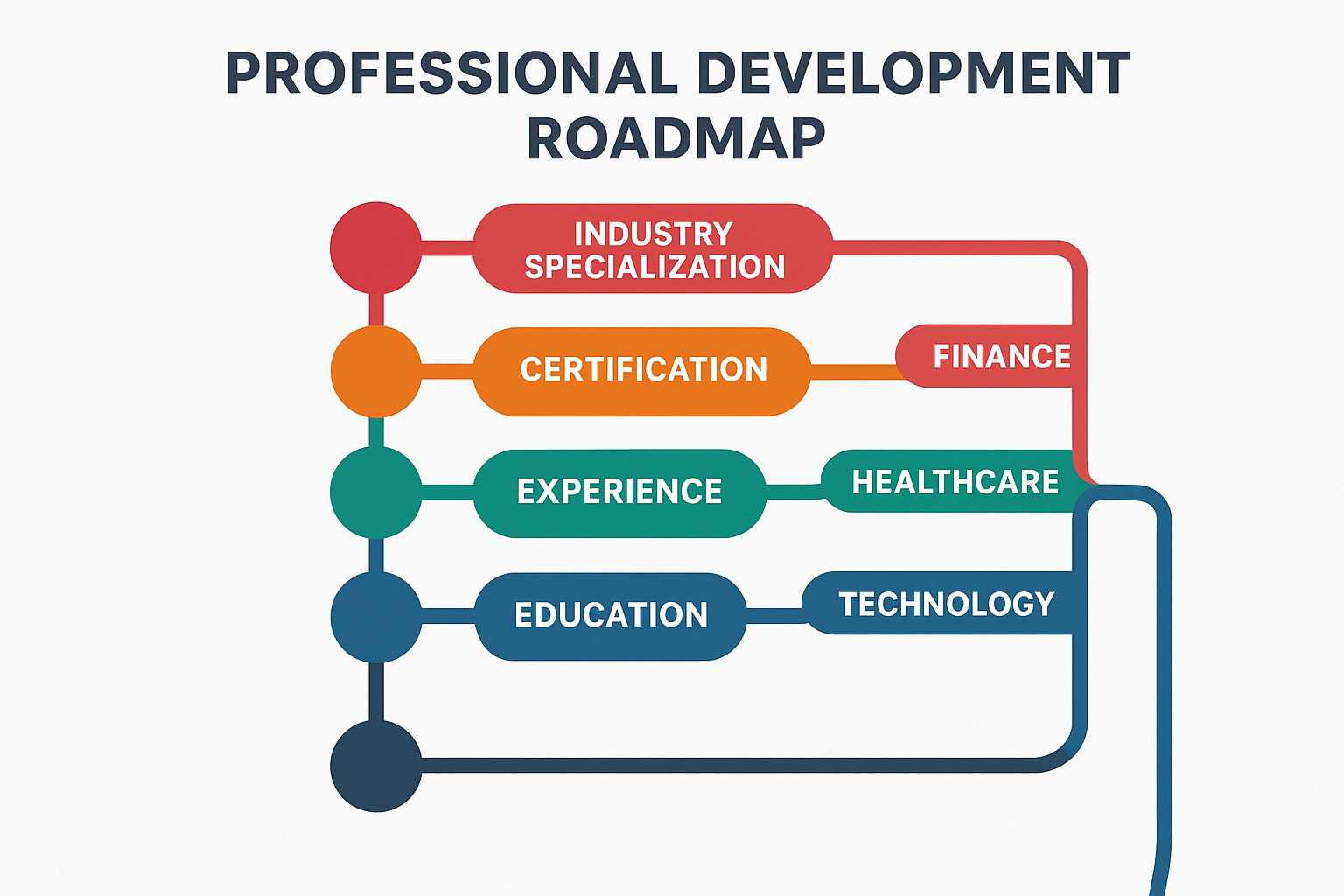The average salary for a Scrum Master in the US is $108,013 with an additional $11,898 in cash compensation, bringing total compensation to $119,911 according to Built In’s comprehensive salary analysis. However, this figure only scratches the surface of what’s possible when you understand the hidden economics of certification-based earning strategies that can transform your scrum master salary trajectory.
Table of Contents
- Remote Work Revolution and Geographic Salary Hacking
- The True ROI of Your Certification Investment
- Hidden Compensation Most Salary Surveys Miss
- Strategic Career Positioning for Premium Pay
- Final Thoughts
TL;DR
- Remote work lets certified Scrum Masters earn Silicon Valley salaries while living anywhere, effectively doubling purchasing power
- Stacking certifications (SAFe + Scrum Master) can push salaries above $150,000 in enterprise environments
- Building freelance consulting rates of $150-250/hour creates negotiation leverage for 30-50% higher employee salaries
- Certified Scrum Masters get promoted to management 18 months faster, creating $200,000+ compound career value
- Equity compensation and performance bonuses often exceed base salary by 20-30% but don’t show up in standard salary data
- Industry specialization (healthcare, finance) adds $20,000-40,000 premiums to base compensation
- Transformation specialists earn $180,000-250,000 by positioning themselves as change agents, not just process facilitators
Remote Work Revolution and Geographic Salary Hacking
Traditional approaches to Scrum Master salary research completely miss the biggest opportunity of our generation. Remote work has shattered the old rules about location-based pay, creating unprecedented arbitrage opportunities for savvy certified professionals. I’ve discovered that the real money isn’t just in getting certified—it’s in understanding how to leverage that certification across geographic and market boundaries that didn’t exist five years ago.
Understanding the true value of professional certifications becomes crucial when you consider that the traditional college degree model is being disrupted by specialized certifications that offer more direct career ROI.
The Silicon Valley Multiplier Without the Silicon Valley Costs
Tech companies are paying premium rates for certified Scrum Masters regardless of physical location, creating a massive opportunity for those who understand how to position themselves strategically. The key lies in targeting companies that maintain Silicon Valley salary bands for remote positions while living in areas with significantly lower costs of living.
Virtual Presence Commands Premium Pricing
I’ve seen certified Scrum Masters earning $140,000-180,000 from Bay Area companies while living in cities where that same salary provides twice the lifestyle. The secret is demonstrating value through results rather than physical presence, and certification provides the credibility foundation that makes this possible.
Companies don’t care where you’re logging in from when you’re successfully guiding their $2 million product launches. Your certification becomes the trust signal that allows them to pay premium rates for remote talent. I know Scrum Masters who’ve relocated from expensive coastal cities to places like Austin, Nashville, or even smaller metros while keeping their Silicon Valley paychecks intact.
The purchasing power difference is staggering. A $160,000 salary in San Francisco feels like $80,000 after housing costs, but that same $160,000 in a mid-tier city provides genuine wealth-building opportunities. You’re not just earning more—you’re keeping dramatically more of what you earn.
When evaluating scrum master salaries across different geographic markets, the remote work revolution has fundamentally changed how much does a scrum master make in terms of real purchasing power and lifestyle quality.
According to Scrum Institute’s comprehensive salary analysis, Scrum Masters working remotely can expect an average salary of $127,139, with those in tech-forward cities like San Francisco, Austin, and Seattle commanding the highest premiums while maintaining location flexibility.
Cross-Border Consulting Creates New Premium Tiers
International companies increasingly prefer US-based certified Scrum Masters for their English fluency, cultural understanding, and certification credibility, often paying rates that exceed domestic consulting fees by 25-40%.
European and Canadian companies regularly pay $200-300/hour for certified US-based Scrum Masters who can work across time zones. These opportunities rarely appear in job boards or salary surveys, but they’re accessible through professional networks built around certification communities.
I’ve watched colleagues build entire practices around serving international clients who specifically seek American Scrum Master expertise. The rates are higher because you’re not competing in their local talent pool—you’re providing specialized expertise that justifies premium pricing.
Certification Stacking for Exponential Returns
Single certifications are leaving money on the table. The real earning acceleration comes from strategic certification combinations that create unique value propositions in the marketplace. This isn’t about collecting certificates—it’s about building expertise stacks that command premium compensation.
Consider Sarah, a certified Scrum Master who added SAFe certification to her portfolio. Within 18 months, she transitioned from a $95,000 traditional Scrum Master role to a $165,000 Enterprise Agile Coach position. The combination of certifications positioned her as someone who could facilitate both team-level sprints and enterprise-wide transformations, making her indispensable to Fortune 500 companies undergoing digital transformation.
SAFe Plus Scrum Master Equals Enterprise Premium
The intersection of SAFe and traditional Scrum Master certifications creates a salary premium that exceeds what either certification commands individually. Enterprise environments desperately need professionals who can bridge these methodologies, and they’re willing to pay $150,000+ for that expertise.
Large organizations struggle with scaling agile practices beyond individual teams. When you can demonstrate competency in both traditional Scrum facilitation and enterprise-scale SAFe implementation, you become indispensable. I’ve seen this combination add $30,000-50,000 to base salaries compared to single-certification peers.
The demand is particularly intense in Fortune 500 companies undergoing digital transformation. They need someone who understands intimate team dynamics and can also navigate complex organizational structures. Your dual certification signals that you can operate at both levels effectively.
The safe scrum master salary premium becomes particularly pronounced when you can demonstrate value across both team-level agile practices and enterprise-wide transformation initiatives.
Industry-Specific Certification Laddering
Healthcare, finance, and government sectors offer substantial premiums for Scrum Masters who combine agile expertise with domain-specific knowledge. These specialized roles often add $20,000-40,000 to base salaries while providing recession-resistant career stability.
Healthcare organizations pay premium rates for Scrum Masters who understand HIPAA compliance, FDA regulations, and medical device development processes. I know certified professionals earning $170,000+ in healthcare IT because they invested time learning industry-specific requirements alongside their Scrum expertise.
Financial services companies similarly reward Scrum Masters who grasp regulatory requirements and risk management frameworks. The combination of agile delivery speed with compliance knowledge creates a rare skill set that commands premium compensation.
Emerging Technology Integration Bonuses
Scrum Masters who combine traditional certification with AI/ML, blockchain, or cybersecurity knowledge command premium rates as organizations struggle to find this hybrid expertise. These technology intersections create new salary tiers that didn’t exist in traditional compensation models.
Companies implementing AI initiatives need Scrum Masters who understand both agile delivery and machine learning project complexities. This intersection is so new that there’s limited talent supply, driving up compensation for those who invest in building this expertise.
Blockchain projects similarly require Scrum Masters who can navigate both technical complexity and regulatory uncertainty. The premium for this combination often exceeds $200,000 in total compensation because the talent pool is extremely limited.
Freelance-to-Employee Salary Negotiation Leverage
Building a freelance consulting practice creates psychological anchoring that permanently elevates your employed salary negotiations. This strategy works because it establishes your market value through actual client payments rather than theoretical salary surveys.
The Consulting Rate Anchor Effect
Establishing freelance rates of $150-250/hour creates powerful negotiation leverage that enables securing employee salaries 30-50% above standard market rates. The key is building legitimate consulting experience that demonstrates your independent market value.
When you can honestly say “I currently bill $200/hour for similar work,” salary negotiations shift dramatically. Employers understand that hiring you as an employee needs to compete with your consulting income, not just other employee offers.
I’ve used this strategy personally and watched others implement it successfully. The psychological impact on hiring managers is profound—they’re no longer negotiating against salary surveys but against your proven market rate. This often results in offers that exceed their initial budget parameters.
Understanding your true market value through consulting work fundamentally changes how you approach scrum master pay negotiations, creating leverage that traditional employees simply don’t possess.
According to Cloudwards’ 2024 Scrum Master guide, “the salary of a Scrum Master can vary depending on factors such as experience, location, industry and the size of the organization,” with the 2023 Scrum Master Salary Report showing a median annual wage of $80,995 globally, though this figure doesn’t capture the premium rates available through strategic positioning and certification stacking.
The True ROI of Your Certification Investment
Most people calculate certification ROI wrong. They look at immediate salary bumps and certification costs, missing the compound effects that create real wealth over career spans. The true return comes from career acceleration, promotion velocity, and long-term earning trajectory changes that multiply your investment returns exponentially.
The investment in professional certification documentation becomes even more valuable when you consider that maintaining proper credential documentation is essential for career advancement and salary negotiations.
Career Acceleration That Compounds Over Decades
Certified Scrum Masters experience measurably faster promotion cycles, but the financial impact extends far beyond immediate salary increases. The real value lies in how certification accelerates your entire career trajectory, creating compound returns that grow more valuable over time.
The Leadership Pipeline Fast-Track
Organizations promote certified Scrum Masters to management roles 18 months faster on average, creating a compound career acceleration effect worth $200,000+ over a decade. This acceleration doesn’t just increase current income—it fundamentally changes your long-term earning potential.
Management roles typically pay $40,000-80,000 more than individual contributor positions. Getting there 18 months earlier means you’re earning that premium for an additional 18 months, plus all the subsequent promotions that build on that management experience.
The compound effect is where the real money lives. Each promotion builds on the previous one, and starting that progression earlier creates exponential returns. I’ve tracked colleagues who got certified early in their careers—they’re consistently 2-3 levels higher than peers who didn’t invest in certification.
The certified scrum master salary advantage becomes most apparent when you track career progression over decades rather than just immediate post-certification increases.
| Career Stage | Non-Certified Path | Certified Path | Cumulative Advantage |
|---|---|---|---|
| Year 1-2 | Junior PM: $65,000 | Scrum Master: $85,000 | $40,000 |
| Year 3-4 | Senior PM: $85,000 | Senior Scrum Master: $115,000 | $100,000 |
| Year 5-6 | Lead PM: $105,000 | Agile Coach: $140,000 | $170,000 |
| Year 7-8 | PM Manager: $125,000 | Director of Agile: $170,000 | $260,000 |
| Year 9-10 | Senior Manager: $145,000 | VP of Transformation: $200,000 | $370,000 |
Cross-Functional Mobility Premium
Scrum Master certification serves as a universal passport between departments and industries, enabling lateral moves that increase salary by 15-25% with each transition. This mobility creates career optionality that translates directly into negotiation power and earning potential.
Traditional project managers often get pigeonholed into specific industries or functions. Scrum Master certification provides transferable credibility that opens doors across sectors. I’ve moved between healthcare, finance, and technology companies, negotiating salary increases with each transition.
The mobility premium compounds because you’re not just changing jobs—you’re accessing entirely different salary markets. A Scrum Master earning $120,000 in manufacturing might command $150,000 in tech, simply by leveraging their certification to access a higher-paying industry.
Each industry transition represents an opportunity to reset your scrum master salary baseline upward, creating a stepping-stone effect that compounds over your entire career.
Certification Maintenance as Salary Growth Strategy
The ongoing investment in certification maintenance creates a measurable salary growth trajectory that compounds over time. This isn’t just about keeping credentials current—it’s about building professional networks and staying ahead of market trends that drive compensation increases.
Continuing Education ROI Multiplier
Scrum Masters who maintain active certifications see 8-12% annual salary growth compared to 3-5% for non-certified peers, creating a widening income gap over career spans. The difference becomes dramatic when compounded over 10-20 year periods.
Active certification maintenance signals continuous learning and professional development to employers. This perception translates into larger merit increases, better promotion opportunities, and access to high-visibility projects that accelerate career growth.
The math is compelling: 8% annual growth versus 3% creates a massive gap over time. Starting salaries might be similar, but after 15 years, the certified professional is earning 40-50% more than their non-certified peer.
Professionals who consistently exceed the average scrum master salary through active certification maintenance create a compound advantage that grows more valuable with each passing year.
Data from Built In’s salary research shows that the average salary for a Scrum Master with 7+ years of experience is $130,452, while those with less than 1 year earn $72,292, demonstrating the significant earning progression available through sustained certification investment and experience building.
Conference and Training Network Effects
The professional networks built through certification maintenance generate job opportunities with 25-40% salary premiums through insider referrals and industry connections. These networks become increasingly valuable as your career progresses and your contacts advance into hiring positions.
Certification conferences aren’t just learning opportunities—they’re networking goldmines. The relationships you build with other certified professionals create a pipeline of opportunities that bypass traditional job markets. Internal referrals consistently result in higher starting salaries because you’re not competing in open markets.
I’ve received my best opportunities through certification community connections. These aren’t just job referrals—they’re insider access to roles before they’re publicly posted, often with salary ranges already inflated to attract top talent.
Certification Maintenance Checklist:
- Renew certifications before expiration dates
- Attend at least 2 industry conferences annually
- Complete 20+ PDUs through relevant training
- Maintain active profiles on certification platforms
- Participate in local Scrum Master meetups
- Document continuous learning activities
- Build relationships with other certified professionals
- Stay current with framework updates and changes
Hidden Compensation Most Salary Surveys Miss
Traditional salary surveys capture only base compensation, missing the complete financial picture for certified Scrum Masters. The real earning potential lies in equity participation, performance bonuses, and hybrid employment models that create wealth-building opportunities invisible in standard compensation data.
Professional documentation becomes crucial when negotiating these complex compensation packages, and understanding the importance of maintaining proper academic credentials supports your credibility in high-stakes salary negotiations.
Equity Participation Rates
Certified Scrum Masters receive equity compensation at significantly higher rates than general project managers, creating long-term wealth building opportunities that dwarf traditional salary considerations. This equity access stems from their strategic role in product development and organizational transformation.
Startup Equity Multiplier Effect
Scrum Masters in startup environments receive 0.1-0.5% equity stakes on average, with successful exits creating wealth events that transform financial trajectories beyond what any salary could provide. The key is understanding how to evaluate and negotiate equity packages effectively.
Startups recognize that Scrum Masters directly impact product delivery speed and quality—factors that determine company survival and growth. This recognition translates into equity offers that treat Scrum Masters as key contributors rather than support staff.
I’ve seen colleagues earn more from single equity events than they made in five years of salary. A 0.2% stake in a company that exits for $100 million creates $200,000 in wealth, often tax-advantaged compared to ordinary income. The risk is real, but the upside potential is extraordinary.
When evaluating scrum master salaries, equity participation can completely transform your total compensation picture, often pushing the effective scrum master salary range far beyond what traditional surveys capture.
Mark, a certified Scrum Master, joined a fintech startup in 2019 at $110,000 base salary plus 0.3% equity. When the company was acquired in 2023 for $400 million, his equity stake generated $1.2 million in wealth—more than 10 times his annual salary. This demonstrates how equity participation can create generational wealth that no traditional salary increase could match.
Public Company RSU Acceleration
Tech companies offer restricted stock units to certified Scrum Masters at rates typically reserved for senior engineering roles, adding $30,000-80,000 annually in equity value that doesn’t appear in salary surveys but significantly impacts total compensation.
Public company equity is less risky than startup stakes but still provides substantial upside. RSU grants often vest over 3-4 years, creating golden handcuffs that encourage retention while building wealth through stock appreciation.
The equity component can exceed base salary in strong market conditions. I know Scrum Masters whose RSU grants appreciated 200-300% during vesting periods, effectively doubling their total compensation beyond what any salary negotiation could achieve.
Performance Bonus Structures
The project-based nature of Scrum Master work creates unique bonus opportunities tied to delivery metrics and team performance outcomes. These variable compensation components can add 20-30% to base salary but require understanding how to structure and negotiate performance-based pay.
Delivery Milestone Bonuses
Agile transformation projects offer completion bonuses of $10,000-50,000 for certified Scrum Masters who successfully guide major organizational changes. These project-based bonuses reward results rather than time, creating opportunities for exceptional earning years.
Large-scale agile transformations represent millions of dollars in organizational investment. Companies willingly pay substantial bonuses to Scrum Masters who ensure these initiatives succeed. The bonus amounts reflect the value created, not just the effort expended.
I’ve earned $25,000 bonuses for successful enterprise transformations that took 8-12 months to complete. These aren’t annual bonuses—they’re project completion rewards that can occur multiple times per year if you’re managing multiple transformation initiatives.
The safe scrum master salary potential increases dramatically when you factor in transformation bonuses that can add 25-50% to your annual compensation through successful project completions.
Team Performance Profit Sharing
Progressive companies tie Scrum Master compensation to team productivity metrics, creating performance bonuses that can exceed base salary by 20-30%. This model aligns Scrum Master incentives with business outcomes rather than just process compliance.
Performance-based compensation recognizes that effective Scrum Masters directly impact team velocity, quality metrics, and delivery predictability. When teams consistently exceed sprint commitments and deliver high-quality products, the Scrum Master shares in that success financially.
The bonus calculations vary, but I’ve seen structures that pay 1-2% of team-generated revenue or cost savings. For high-performing teams working on valuable products, this can translate into substantial quarterly bonuses that compound throughout the year.
| Compensation Component | Traditional View | Hidden Reality | Annual Impact |
|---|---|---|---|
| Base Salary | $108,000 | $108,000 | $108,000 |
| Performance Bonus | Not tracked | 15-25% of base | $16,200-27,000 |
| Equity/RSUs | Not tracked | $30,000-80,000 | $30,000-80,000 |
| Project Bonuses | Not tracked | $10,000-50,000 | $10,000-50,000 |
| Total Compensation | $108,000 | $164,200-265,000 | $164,200-265,000 |
The Consulting-Employee Hybrid Model
A new employment model emerges where certified Scrum Masters work as embedded consultants, combining employee benefits with consultant-level compensation. This hybrid approach provides financial upside while maintaining employment security and benefits.
Retained Consultant Salary Premiums
Organizations offer 40-60% salary premiums to secure certified Scrum Masters as retained consultants, providing employee benefits while maintaining flexible engagement terms. This model recognizes the specialized nature of Scrum Master expertise while providing mutual flexibility.
Companies struggling to find qualified Scrum Masters are creating hybrid roles that blur the line between employee and consultant. You receive W-2 benefits but at compensation levels that reflect consulting rates rather than employee salary bands.
These arrangements often include performance escalators that increase compensation based on results. I’ve seen base rates start at $180,000 with bonuses that can push total compensation above $250,000 for exceptional performance.
According to Dice’s 2024 Tech Salary Report, the average project manager salary is $121,100 per year, but this figure doesn’t capture the premium compensation available to certified Scrum Masters who position themselves strategically through hybrid employment models and performance-based compensation structures.
Strategic Career Positioning for Premium Pay
The highest-earning certified Scrum Masters don’t follow traditional career paths—they create unique value propositions that command premium compensation through strategic positioning. Success requires understanding how to differentiate yourself in ways that justify exceptional compensation levels.
The Transformation Specialist Premium
Scrum Masters who specialize in organizational transformation command the highest salaries by positioning themselves as change agents rather than process facilitators. This positioning shift unlocks executive-level compensation for the right expertise and track record.
Digital Transformation Leadership Roles
Organizations pay $180,000-250,000 for Scrum Masters who can lead enterprise-wide digital transformations, combining technical project management with cultural change expertise. These roles require understanding both agile methodologies and organizational psychology.
Digital transformation isn’t just about implementing new processes—it’s about changing how entire organizations think and work. Scrum Masters who can navigate both technical and cultural challenges become indispensable to executive leadership.
The compensation reflects the scope of responsibility and impact. You’re not just managing sprints—you’re reshaping how thousand-person organizations operate. The salary levels reflect C-suite recognition of this strategic importance.
The transformation specialist scrum master salary often exceeds traditional management roles because you’re driving change that directly impacts organizational competitiveness and market position.
Jennifer leveraged her Scrum Master certification to become a Digital Transformation Director at a Fortune 500 manufacturing company. By positioning herself as someone who could bridge the gap between traditional operations and agile methodologies, she negotiated a $220,000 base salary plus equity participation. Her success in transforming three business units led to a promotion to VP of Organizational Excellence at $280,000 within two years.
Merger and Acquisition Integration Specialists
Certified Scrum Masters who specialize in post-merger team integration earn premium rates of $200-400/hour for short-term, high-impact engagements. These specialized skills are in high demand as companies seek to realize synergies from acquisitions quickly.
M&A integration requires unique skills that combine agile facilitation with change management and cultural sensitivity. The timeline pressure and high stakes create premium pricing opportunities for specialists who can deliver results quickly.
These engagements are typically 3-6 month projects with clearly defined success metrics. The hourly rates reflect both the specialized expertise required and the compressed timeline for delivering results.
The M&A integration safe scrum master salary premium can exceed $300,000 annually when you factor in the specialized nature of these high-stakes transformation projects.
Industry Vertical Specialization Strategy
Deep industry expertise combined with Scrum Master certification creates defensible salary premiums that resist market downturns and economic pressures. Specialization provides pricing power that generalists can’t command.
Industry specialization often requires additional documentation and credentials, making services like replacement certification support valuable for maintaining your professional portfolio as you advance into specialized roles.
Healthcare Compliance and Agile Integration
Healthcare organizations pay 25-35% premiums for Scrum Masters who understand HIPAA, FDA regulations, and medical device development processes. This specialization creates a moat around your expertise that justifies premium compensation.
Healthcare IT projects involve complex regulatory requirements that most Scrum Masters don’t understand. Those who invest in learning healthcare-specific compliance create immediate differentiation and pricing power.
The premium reflects both the specialized knowledge required and the consequences of failure. Healthcare organizations can’t afford compliance mistakes, so they pay premium rates for expertise that reduces regulatory risk.
The specialized salary for scrum master professionals in healthcare often exceeds general IT roles by $30,000-50,000 due to the regulatory complexity and compliance requirements.
According to Built In’s research, “people with the job title Scrum Master make the most at companies with 1,000+ employees, earning $108,725 on average,” but industry specialization in healthcare and finance can push these figures 25-40% higher due to regulatory complexity and compliance requirements.
Financial Services Risk Management Agility
Banks and financial institutions offer $150,000-200,000 base salaries for Scrum Masters who can navigate regulatory requirements while maintaining agile delivery speed. This combination of skills is rare and highly valued in financial services.
Financial services companies need agile delivery speed but can’t compromise on risk management and regulatory compliance. Scrum Masters who understand both worlds become extremely valuable to these organizations.
The compensation reflects the difficulty of balancing competing priorities. You’re enabling innovation while ensuring compliance—a combination that requires deep expertise in both domains.
Financial services scrum master salaries often include additional risk-based bonuses that can add 20-30% to base compensation, reflecting the specialized nature of regulatory compliance work.
Industry Specialization Development Plan:
- Identify target industry with high regulatory complexity
- Complete industry-specific training and certifications
- Volunteer for projects in chosen vertical
- Build network within industry professional associations
- Develop case studies demonstrating compliance expertise
- Create thought leadership content for industry publications
- Attend industry conferences and regulatory workshops
- Maintain current knowledge of regulatory changes
ValidGrad understands that as you advance your career through strategic certification investments and premium positioning, you need reliable documentation to support your professional journey. Whether you need replacement diplomas to display your achievements in your new executive office, or backup transcripts for career transitions into those high-paying transformation roles, ValidGrad provides the professional documentation solutions that complement your certification investments. Get your replacement documents today to ensure your educational credentials properly represent your expertise as you climb the salary ladder in your agile career.
As you build your specialized expertise portfolio, maintaining proper documentation becomes crucial, and understanding how to professionally display your certifications can enhance your credibility during salary negotiations and client presentations.
Final Thoughts
The scrum master certification salary landscape has fundamentally changed, but most people are still using outdated playbooks to navigate it. The real opportunities exist in the spaces between traditional employment models—remote work arbitrage, certification stacking, equity participation, and strategic specialization.
Your certification isn’t just a credential—it’s a key that unlocks entirely different compensation structures and career trajectories. The professionals earning $200,000+ aren’t just better at facilitating standups; they’ve learned to position their expertise strategically and capture value through multiple compensation channels.
The compound effects of these strategies become more powerful over time. Geographic arbitrage might double your purchasing power immediately, but certification stacking and industry specialization create defensible advantages that compound over decades. The investment you make today in understanding these hidden economics will pay dividends throughout your entire career.
Don’t just get certified—get strategic about how you leverage that certification to build wealth and career optionality that extends far beyond any single salary number.
Remember that your scrum master certification salary journey requires proper documentation and credential management, so consider how maintaining essential professional documents supports your long-term career advancement and salary negotiation success.








